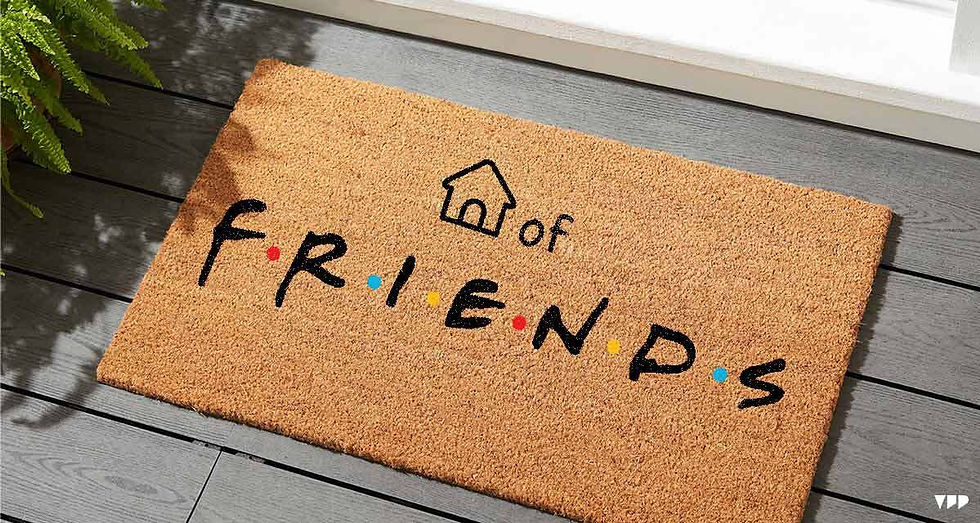Think Outside the Mortgage: Creative Ways to Buy a Home in 2025
- Kayla Sargent

- Jul 27, 2025
- 3 min read

Overwhelmed by high home prices, interest rates, or the feeling that you’re “just not ready” to be a homeowner yet?
You’re not alone, Here's creative ways to buy a home in 2025.
According to the 2025 NextGen Homebuyer Report, nearly 60% of Gen Z and Millennial buyers believe homeownership is attainable, but only 19% think now is a good time to buy.
So what are they doing instead? They’re getting creative.
Here are the four most popular alternative buying strategies young buyers are using to make homeownership work in 2025, plus how to know if one might be right for you.

1. Buying a Fixer-Upper (Creative Ways To Buy a Home #1)
Used by: 42% of buyers surveyed Good for: Handy buyers who want more space for less money not great for: Those who need move-in-ready or have limited renovation budgets
Buying a home that needs a little love can be one of the smartest ways to get into a neighborhood you otherwise couldn’t afford. In many markets, fixer-uppers sell for 10–30% below comparable move-in-ready homes.
Pros:
Lower upfront cost
Opportunity to build equity fast
Potential for customization
Cons:
Renovation costs can add up quickly
May require permits, inspections, and time
Harder to finance with certain loan types
If buying a fixer-upper appeals to you, be sure to ask your agent about renovation loan options like FHA 203(k), which rolls reno costs into your mortgage.
Check out of list of OUR preferred lenders here and lets talk fixer uppers

2. Co-Buying With Friends or Family
Considered by: 21% overall, but 32% of Gen Z Good for: Buyers with trusted partners who want to pool resources not great for: Those with unclear agreements or mismatched financial goals
Co-buying is on the rise, especially among Gen Z buyers, who are teaming up with siblings, friends, or partners to afford a home together. If done right, it can cut your expenses in half and double your buying power.
Pros:
Shared down payment and monthly costs
Larger budget for a better home or location
Built-in support system
Cons:
Requires clear legal agreements
Disagreements can affect finances and relationships
Resale or exit strategy needs to be defined in advance
Interested in co-buying? Make sure both parties are on the same page. Have a real estate attorney draft a co-ownership agreement outlining who pays for what, how equity is split, and what happens if one person wants to sell.

3. House Hacking (a.k.a. Renting Out Part of Your Home)
Used by: Nearly 1 in 5 buyers (18.6%) Good for: Buyers open to becoming landlords or living with tenants not great for: Those who value privacy or want a single-use space
“House hacking” means buying a property with built-in rental income, like a duplex, ADU, or even a basement apartment you can rent on Airbnb or to a long-term tenant. The goal is to offset part (or all!) of your mortgage.
Pros:
Generates passive income
Helps cover your monthly mortgage
Can turn your home into a long-term investment
Cons:
Zoning or city regulations may restrict rentals
You may have to share space or manage tenants
Requires extra insurance and financial planning
Make sure you check out local short-term rental (STR) laws before counting on rental income. Not all cities allow it, or they may require permits.
4. Relocating to a More Affordable Area
Considered by: 47% of buyers surveyed Good for: Remote workers, flexible buyers, or those priced out of their current market Not great for: Those tied to one specific school district, job location, or community
Remote work has changed the homebuying game. Nearly half of young buyers are considering moving to lower-cost areas where their money stretches further.
Pros:
More square footage for your budget
Lower property taxes and living expenses
Opportunity to build wealth faster
Cons:
May require changing jobs or adjusting commute
Fewer amenities or slower appreciation in some areas
Harder to preview homes in person if moving far
Ask your agent about up-and-coming areas or suburbs just outside the “hot zone.” You may find hidden gems with high upside.







Comments